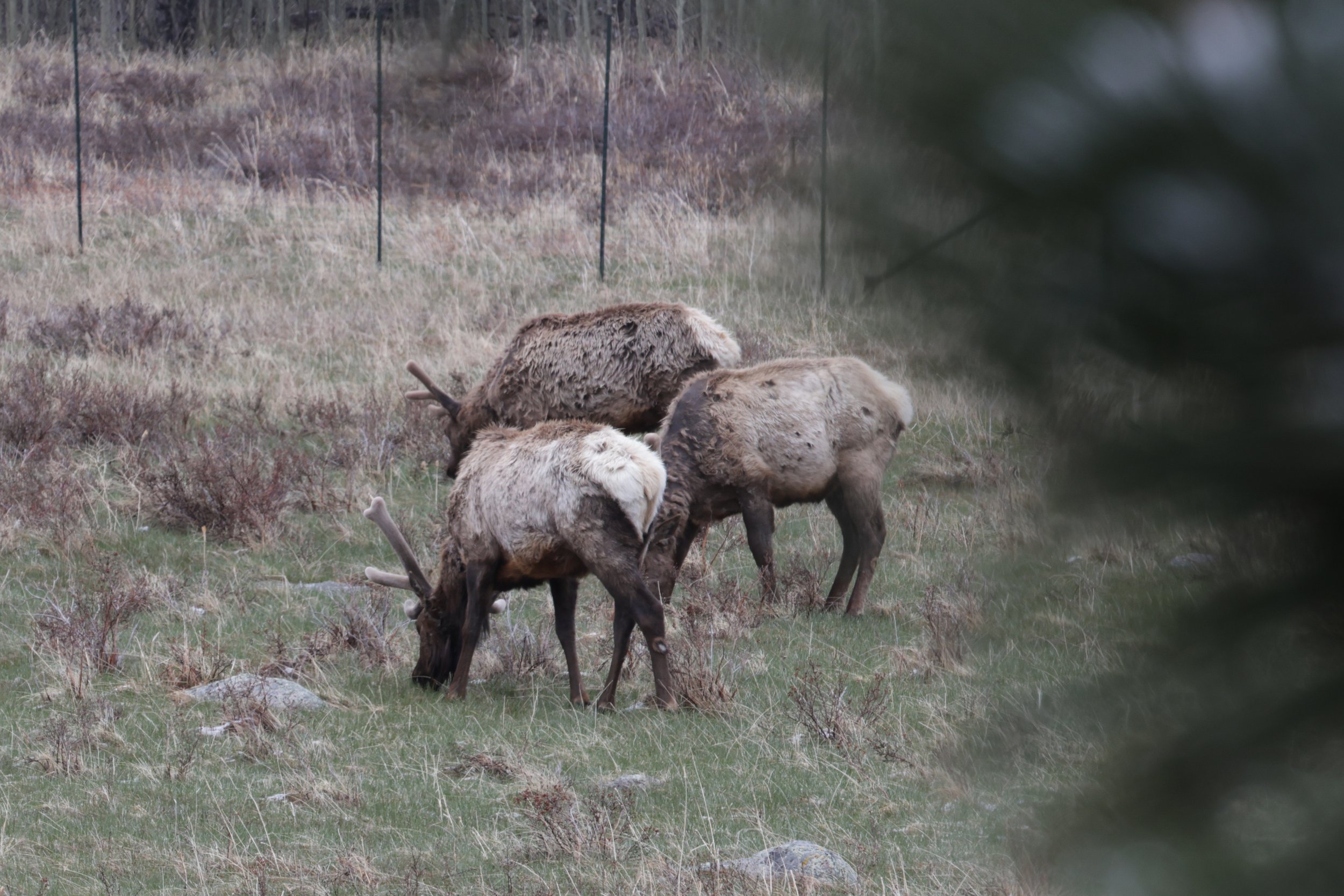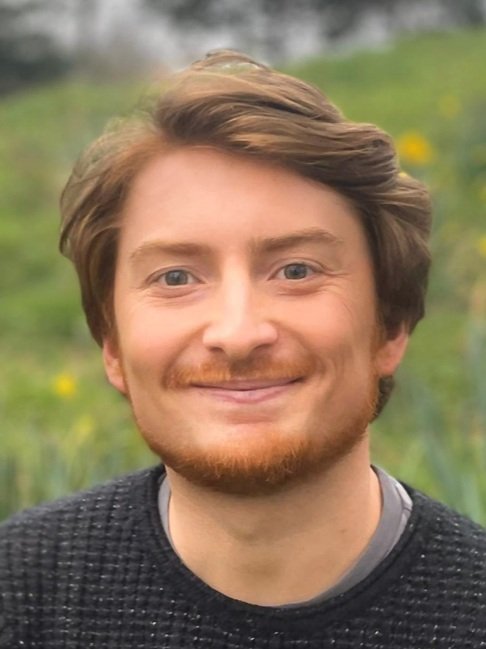
Grant review panels
Our review process
We match proposals with suitable reviewers based on what we identify as the most crucial questions raised by each project, and use reviewer feedback to arrive at final decisions about which projects to fund.
Our grant review panels consist of experts across relevant disciplines who evaluate projects proposed by our grant applicants and make recommendations for improvement. They consider project design, animal ethics, and how the project is likely to be received by the scientific community. We also engage reviewers on an ad hoc basis to provide additional insight on certain topics, especially for our Challenge Grants program.
Reviewers consider:
The scientific validity of the project design and welfare metrics.
The project’s practical feasibility and cost effectiveness.
The project’s contribution to wild animal welfare science.
The ethical treatment of animals impacted by the project.
The likelihood of a project leading to publication.
Interested in being a reviewer? Learn more here.
Our technical reviewers
Heather Browning
-
Heather Browning is a Lecturer in Philosophy at the University of Southampton. She specializes in animal welfare, sentience, and ethics, with a particular interest in how to measure animal welfare in captivity and the wild. She completed her PhD in Philosophy at the Australian National University, writing on conceptual and methodological questions in the measurement of animal welfare, and has worked as a postdoctoral researcher in animal sentience and welfare at the London School of Economics, as part of the Foundations of Animal Sentience project. Alongside her academic career, Browning has also worked as a zookeeper and animal welfare officer.
Pablo Capilla-Lasheras
-
Pablo completed his biology degree at the Complutense University of Madrid (Spain), followed by an MSc in Quantitative Methods at the University of Glasgow (UK) and a PhD on the evolution of cooperative behavior at the University of Exeter (UK). He is interested in global change biology, from adaptive mechanisms to evolutionary and welfare implications. Pablo is currently a Global Marie Skłodowska-Curie Fellow at the Swiss Ornithological Institute (Switzerland) and Doñana Biological Station - CSIC (Spain), studying anthropogenic impacts on long-distance bird migration.
Andrew Crump
-
Andrew Crump is Lecturer in Animal Cognition & Welfare at the Royal Veterinary College. Specializing in invertebrates, he studies questions like: Which animals are sentient? Why did sentience evolve? And what does sentience mean for animal welfare? Andrew previously worked as Postdoctoral Researcher in Animal Sentience at the London School of Economics. In this role, he was part of a team that advised the UK government to protect certain invertebrates under animal welfare law. The government responded by amending the Animal Welfare (Sentience) Act 2022 to cover cephalopod molluscs and decapod crustaceans. Andrew completed his PhD in Biological Sciences at Queen’s University Belfast in 2020.
Dave Daversa
-
Dave completed his PhD in Zoology at the University of Cambridge (UK), where he studied interactions between wildlife movement and disease spread. Through postdoctoral research in the UK and the US, he developed expertise in wildlife infectious disease, the ecology of fear, and the non-lethal effects of biological stressors. Dave is based in Los Angeles, California, USA and is a Research Scientist in the Institute of the Environment and Sustainability, UCLA.
-
Vittoria Elliott is a Research Associate at the Smithsonian Institution. She studies a range of disciplines and taxonomies, from ecosystem modeling to behavioral ecology, population genetics, and environmental DNA. Most recently, she has been conducting research to understand wild animal welfare and implications for wildlife. Vittoria was previously Science Director at Wild Animal Initiative and Conservation International, and a consultant for WorldFish and FAO. She completed her PhD in ecology and evolution at Durham University.
Vittoria Elliott
-
Wasseem is an accomplished aquatic ecologist with over 14 years of experience across the fisheries and aquaculture sector. Holding advanced degrees in applied aquatic ecology, Wasseem is currently completing his doctorate on the welfare of farmed Nile tilapia at the University of Stirling in the UK. He is passionate about using research and strategic leadership to preserve aquatic ecosystems and promote sustainable practices in the fisheries and aquaculture industry.
Wasseem Emam
Alan McElligott
-
Dr. Alan McElligott received his BSc Zoology from University College Cork, PhD Zoology from University College Dublin (Ireland), and carried out postdoctoral research at the University of Zurich. After serving as a faculty member at the University of Nottingham, Queen Mary University of London, and the University of Roehampton, he joined City University of Hong Kong in 2020.
He is a member of the Agriculture, Fisheries and Conservation Department (AFCD) Animal Welfare Advisory Group (AWAG), for the Hong Kong government, and is also on the Farm Sanctuary (USA), Animals Advisory Committee.
His research group is focused on understanding how evolution, ecology and domestication affect animal behavior, cognition and welfare. The current main species for his research are: feral cattle and water buffalo, goats, and chickens. He also actively promotes higher ethical research standards.
Allen Rutberg
-
Allen received his PhD in Zoology from the University of Washington in Seattle and currently directs the Tufts Center for Animals and Public Policy in Massachusetts, USA. His research focuses on field testing reversible, remotely-deliverable contraception for suburban deer and wild horses. He hopes that in addition to directly mitigating human-wildlife conflicts, wildlife contraceptives can help better integrate our wild neighbors into human-dominated landscapes.
-
Isaac is a PhD student in Comparative Health Sciences at Oregon State University. Previously, they received their BA in Biology at Reed College. Their research describes parasite communities in Grand Canyon using DNA metabarcoding and assesses the impacts of parasitic infection on the welfare of native fish. The overall motivation of their research is to understand the connections between welfare, parasitism, and the conservation of both parasites and hosts. Isaac is located in Corvallis, Oregon.
Isaac Schuman
Manrico Sebastiano
-
Manrico Sebastiano completed his eco-biology studies at Sapienza University of Rome in Italy, and his PhD on the ecophysiology of seabirds associated with natural sources of stress at the University of Antwerp in Belgium. Since then, he has mainly worked on the physiological responses of different species of seabirds to environmental pressures including environmental contaminants, urbanization, and disease, in both Arctic and tropical regions. Manrico is currently located in Belgium, where he is carrying out his second postdoctoral mandate.
Our ethics reviewers
Ren Ryba
-
Ren works as a research scientist in the animal advocacy movement. Ren has experience examining the effectiveness of a wide variety of causes and campaigns within animal advocacy. They have a particular interest in exploring interventions that involve the population dynamics of wild animals. Ren has a PhD in fisheries biology and a bachelor's degree in ecology.
Bob Fischer
-
Bob is Professor of Philosophy at Texas State University, Senior Researcher at Rethink Priorities, and a director of the Animal Welfare Economics Working Group. He's one of the authors of Wildlife Ethics: The Ethics of Wildlife Conservation and Management (Wiley, 2023) and the editor of Weighing Animal Welfare: Comparing Well-being Across Species (Oxford University Press, 2024).
Miriam A. Zemanova
-
Miriam received her PhD in Ecology and Evolution at the University of Bern and completed postdoctoral fellowships at the Department of Philosophy at the University of Basel and the Centre for Compassionate Conservation at the University of Technology Sydney. She is currently based at the Environmental Sciences and Humanities Institute at the University of Fribourg in Switzerland. Her research interests include wild animal welfare, animal research ethics, and the implementation of the 3Rs principles and non-invasive methods in wildlife research (https://3RsWildlife.info). You can find out more about her work at https://miriamzemanova.com.













